
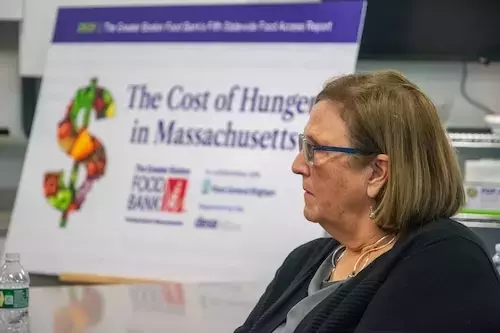
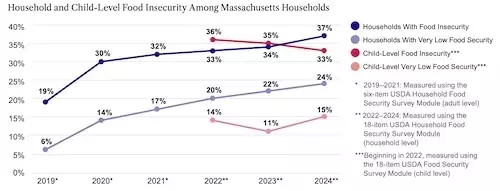
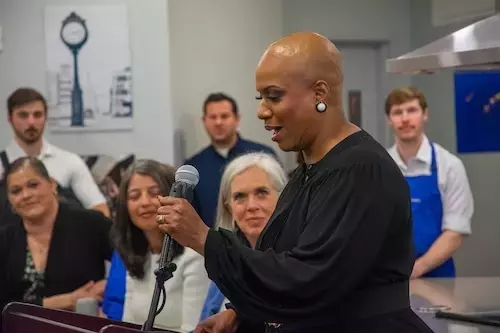
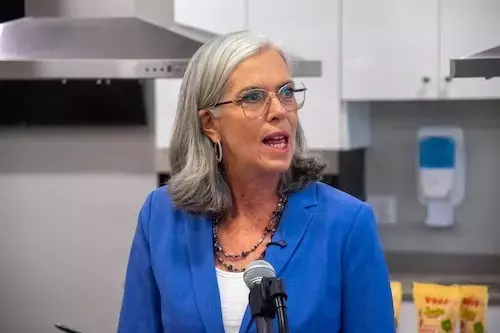
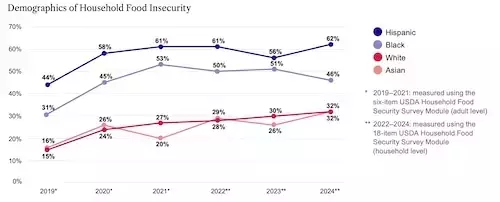
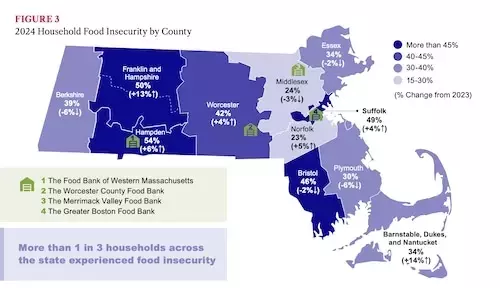


A recent study reveals that over two million adults in Massachusetts, constituting more than a third of households, struggle to secure adequate food or are uncertain about their next meal. The findings highlight an ongoing crisis affecting a significant portion of the state's population and come amid warnings from officials about potential cuts to federal assistance programs proposed by Republican lawmakers. At a press conference in Revere, Catherine D’Amato, President and CEO of the Greater Boston Food Bank, emphasized the need for coordinated action across all sectors to address this issue, stating that inaction is not an option.
This alarming trend began with a sharp increase during the first year of the COVID-19 pandemic and has continued to rise annually. According to the fifth-year report, 37% of Massachusetts adults surveyed between November and March reported being food insecure within the past year. Before the pandemic, only 19% of households faced such challenges. Since then, the situation has worsened, with very low food security impacting over 650,000 households—nearly a quarter of the state’s total. Among these, children have been particularly affected, with one-third experiencing food insecurity.
The pandemic's lingering effects significantly contribute to this crisis. Rising costs of living, coupled with reductions in expanded social programs like SNAP (Supplemental Nutrition Assistance Program), exacerbate the problem. Food banks warn they cannot compensate for the proposed cuts to essential aid programs. Representative Ayanna Pressley highlighted the invisible nature of hunger, noting its impact on individuals regardless of background. Meanwhile, Representative Katherine Clark shared stories from her district, illustrating how crucial federal assistance is for many families struggling to make ends meet.
Disparities among ethnic groups reveal Hispanic residents suffering most severely, with over 60% experiencing food insecurity—a jump from 44% pre-pandemic. Similarly, 46% of Black residents faced similar struggles last year. Notably, rates among White and Asian populations also more than doubled since 2019. Western and Central Massachusetts, along with Bristol County, show the highest levels of food insecurity statewide, with Hampden County leading at 54%.
Beyond immediate hunger, inadequate nutrition leads to broader health issues, including diabetes and heart disease. Dr. Lauren Fiechtner, Director of Nutrition at Mass General Brigham for Children, explained that food insecurity often forces difficult choices between nourishment and other necessities like utility payments and rent. Respondents expressed desires for healthier options if financial burdens were alleviated, emphasizing the importance of access to quality foods rather than mere sustenance.
Addressing food insecurity requires comprehensive strategies involving all stakeholders. As D’Amato stated, solving hunger involves recognizing its human toll beyond statistics. By fostering collaboration and maintaining vital support systems, Massachusetts can work towards ensuring no resident goes without necessary nutrition.
